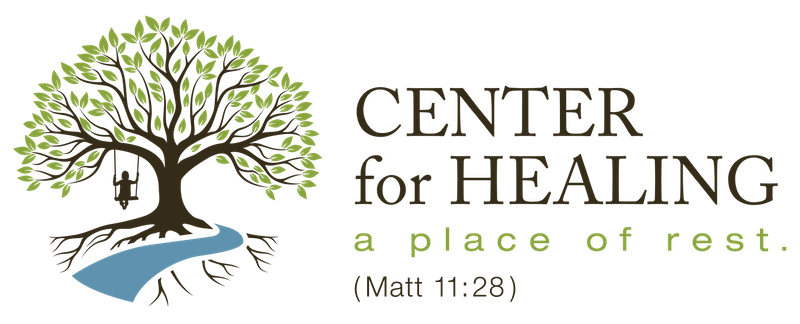
All people have intrusive thoughts. The phrase "intrusive thoughts" might seem to be somewhat mysterious. How can our own thoughts be "intrusive"? Why do some of our thoughts seem to be from somewhere else and yet be our own at the same time? Why do some people seem completely unaffected by intrusive thoughts, while for others all it takes is one to derail their whole day? And what do you do if you are one of those who is negatively affected by your intrusive thoughts?
The human mind processes thousands of thoughts each day. Some flit through without us even noticing, like birds that fly past our windows without a glance from us. Others require attention to manage, still others require deliberation to resolve. Some thoughts, however, carry a heavy emotional charge, and require not so much deliberation as reaction. These are the thoughts that inspire fear, worry, shame and disgust. When a thought comes into our mind and gets our attention by arousing negative emotion in us, our natural reaction is to reject it, try to make it go away and force it to never come back. Unfortunately, thoughts have a pattern of inverse reaction; that is, the more we try not to think a thought, the more we can't help but think it. This is the pattern of anxiety, worry and OCD.
These intrusive thoughts seem to come out of nowhere, sometimes we recognize their source in a memory, but often we have no idea why such a thought would come into our heads. The fact is that everyone has these thoughts, but not everyone feels the same emotional charge. There seem to be some people who are, because of their physical and emotional make-up, more sensitive to certain kinds of thoughts. This sensitivity, surprisingly, often includes our values. Think about it, who is going to be most reactive to a thought about doing harm to someone else? Those thoughts would most likely get the strongest reaction from someone who naturally valued gentleness and the good of the people around him. Who would be most disturbed by thoughts of sin or blasphemy? Of course, it is the person who has a particular desire to love and glorify God. Unfortunately, because these thoughts are so disturbing to us, we find ourselves, sometimes from a very early age, fighting hard to suppress, deny, or otherwise negate these terrible thoughts. After all, what kind of person has thoughts like that?!
Not only do we have to suppress and negate the thoughts themselves, we also find ourselves overwhelmed by our emotional reaction to these thoughts and what having them might mean about our real selves. These feelings of anxiety, fear, shame and disgust are some of the most intolerable emotions that humans can experience, and when we experience them as young people we feel particularly overwhelmed. We look for ways to resolve those negative emotions. We check the lock on the door. We wash our hands one more time. We check the internet to make sure we are not crazy. We ask someone we trust to clear things up. We say an extra prayer to make up for the sin.
And it helps, at least for a while, but then the thought comes back, or one like it, and then we have to start over again. Over time, our minds discover that this is a reliable method for getting those fight/flight chemicals on board, and also that our meager offerings of checking, seeking reassurance and prayer are not solving the larger problem of residual anxiety. We soon find ourselves inside of an invisible cage, trapped there by only the things going on in our own minds. All of this thinking and avoiding and appeasing the anxiety takes a long time. Eventually, we get used to the cage. It defines the boundaries of our daily life. The problem is that those boundaries get smaller and smaller as time goes on, but what else can we do? We begin to believe it is what we deserve.
If you are reading this in sorrow, empathically aching for the souls who suffer thius kind of daily torment: Please understand that those of us suffering like this don't want it, but don't know how to get free without hurting anyone. Thank you, but this article is not really for you.
If you are reading this and asking why I know what your life has been like, then please reach out and allow a therapist who is qualified to offer you ACT and ERP to help you get free of the fear and shame that have become part of your daily life. I have been writing in generalities, about fear, shame and disgust. The specifics of individual intrusive thoughts would fill several pages, and the rituals to deal with the negative feelings several more. The fact is that Anxiety and OCD may manifest under many, many parts of daily living: disease, death, cleanliness, violence, sexual orientation, romantic relationships, faith, sin, protecting children, crime, home decor, and many others. How? How can worries about such disparate topics all be found under the same diagnostic umbrella? The answer is the human nervous system. The way we have been designed allows our nervous systems to be triggered by a thought about anything that is important to us.
Take heart! This actually indicates that you are a principled person, and that your heart and mind resist the destructive thoughts that are disturbing you so much. And there is a way out. The gold standard in OCD care is a process called ERP, exposure and response prevention. Supported by a couple of other practices to help you clarify your true values and the content of your intrusive thought cycle, ERP allows you to regain control of your response to intrusive thoughts. This puts you back in the driver's seat when it comes to your thoughts and responses to them. It is difficult work, as it involves rewriting what has become a habitual script in your self-talk, but it is powerful and liberating.
If you know someone who is living in a cage built of fear, worry or scrupulosity, pass this article on to them and support them with patience and understanding.
For those of you feeling that your life is restricted and you'd like to get free: There is a way out, and we are ready to help you find it.
Cathy Durando, MA PLPC
Resources:
https://app.treatmyocd.com/community/posts
https://canyoncreekbh.com/blog/what-are-intrusive-thoughts-and-how-to-deal-with-them/
https://www.betterhelp.com/advice/how-to/how-to-stop-intrusive-thoughts-and-live-your-life/



